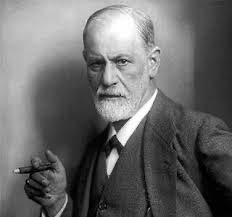The Psychodynamic Approach - Psychology
The Unconscious
Sigmund Freud developed the psychodynamic approach. He believed that behaviour was determined by psychological factors rather than biological or environment.
He suggested that the part of the mind that we are aware of is just the tip of the iceberg as seen above and the rest of the mind is an unconscious storehouse of drives and impulses that impact our behaviour. As a result he assumed that our behaviour is largely driven by our unconscious.
The Structure of Personality
Id - this is the selfish, primitive part of the mind that gets what it wants. It operates on the pleasure principle and is a seething mass of unconscious drives and instincts. Babies are small bundles of Id - they cry a lot and demand food, sleep and attention. The Id in action - if a person is hungry, the Id demands food right there and then, regardless of the circumstances.
Ego - The ego works on the reality principle and acts as mediator (or referee) between the Id and Superego. It takes into account the reality of the outside world, using the example above, it might delay getting food until there is an appropriate opportunity to eat, e.g. after class, after a meeting, etc. It develops around the age of two years and often deploys defence mechanisms to reduce conflict between the Id and Superego.
Superego - this is our internalised sense of right and wrong (our inner angel) and forms at the end of the phallic stage around the age of 5. It is consciously aware of societal rules and what behaviours are permissible.
Defence Mechanisms
The Ego sometimes struggles to mediate between the Id and Superego but it does have some unconscious support mechanisms to assist. These defence mechanism distort reality to reduce feelings of stress and anxiety associated with a traumatic situation.
Examples of Defence Mechanisms
Denial - acting as if a traumatic event has not happened so as to not have to deal with painful feelings associated with that event.
Repression - the unconscious blocking of traumatic events, thoughts and impulses. Rather than remaining the the unconscious these repressed thoughts continue to impact behaviour in unconscious ways without the person realising
Displacement - transferring thoughts and feelings from a source of stress to a substitute - being unable to deal with a problem but engaging in emotional eating instead.
Psychosexual stages
Freud identified 5 stages that people go through as children. If our experience at any of these phases was traumatic, we might develop fixations or problems later in life such as addictions or depression.
Oral Phase - aged 0 - 1
At this stage we can perform basic tasks like grasping and sucking (breast or bottle for feeding). If there is a problem at this stage, like getting wearing off (mother breast feeding) feeding too early which can cause an oral fixation later in life. People act out in other ways and develop issues as adults due to the trauma caused during the oral phase, like addiction.
Anal Phase - aged 1 - 3
The primary focus at this stage is the control of the bladder and bowel movements and it is at this stage that children potty train. If there a problem or trauma at this phase, like getting forced into potty training too early and being punished for mistakes it can lead to an adult being 'anally retentive' - stingy, overly clean and organised, 'tight' with money and a tendency to obey authority.
Phallic Phase - aged 3 - 6
At the phase the libido fixates on the genitals. Girls suffer from 'penis envy' as they seek to have the power of their fathers. Boys suffer the Oedipus complex wherein they desire their mother, resent their father but fear castration.
Latent Phase - aged 7 - 13
Genital Phase - Puberty - death
Evaluation
Strength - Psychoanalysis - the development of psychoanalysis offered a new approach to understanding psychology and offered an alternative to biological treatments to conditions like depression.
Strength - psychoanalysis became a dominant force in the early to mid 20th century for explaining behaviour
Limitation - it is untestable and unscientific. Because the unconscious cannot be observed or measured it cannot be tested or disproved.











Comments
Post a Comment